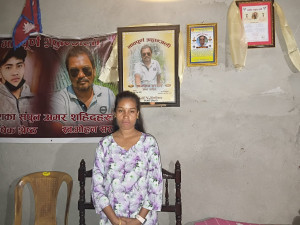Entertainment
Welcome to the club
Ron Woodroof (Matthew McConaughey) has but one thing on his drug- and drink-addled mind: staying alive.
Preena Shrestha
Ron Woodroof (Matthew McConaughey) has but one thing on his drug- and drink-addled mind: staying alive. The Texan electrician and rodeo cowboy has been on a life-long bender of sorts, escorted along by a parade of loose women, but reality has just accorded him a giant kick up the posterior. It's 1985, and Drs Saks (Jennifer Garner) and Sevard (Dennis O'Hare) have informed Woodroof that he is HIV positive. It's a double whammy: Not only does he have a mere 30 days to live, but at a time when misconceptions about the condition ran high around the world, the humiliation of having contracted what was still largely considered a “gay disease”, for an open and unapologetic homophobe like our scrawny redneck, is almost as bad as the possibility of croaking before the month is out.
Of course, this small-time hustler is determined to go down swinging. A great deal of research later, he finds out about a new drug called AZT, supposedly effective, but yet to be approved by the US' Food and Drug Administration agency. Wary that he might not live long enough to see it made available, Woodroof begins acquiring the drug illegally. But he soon discovers that AZT isn't all it's cracked up to be—if anything, it makes things worse. It's then off to Mexico, where he is introduced—via the saintly Dr Vass (Griffin Dunne)—to a whole world of promising alternative treatments that Americans don't have access to.
Ever the entrepreneur, Woodroof—seeing the positive effects of the new meds on his own health—figures that bridging the legal divide could prove a lucrative venture, and starts smuggling in medical wares from Mexico and beyond into the US. But reeling in customers is a challenge, until he meets a young transgender woman, also AIDS-afflicted, named Rayon (Jared Leto, in drag, bearing an uncanny resemblance to Zooey Deschanel), who becomes his connection to the gay community and eventually, his business partner. The Dallas Buyers Club is thus born, and it is soon blooming, the go-to place for the HIV-positive to stock up on non-FDA-approved drugs. Unfortunately, the successful run means authorities and corporations are on the club's heels in no time. Woodroof must now work to defend not just his own right to treat himself as he sees fit but also that of an entire community he once despised but has since, grudgingly, come to think of as allies.
As with most films that are “inspired by true events”, the story of Ron Woodroof—which first appeared in a Texas periodical in 1992, shortly before the man passed away—has no doubt been simplified to a great extent for dramatic purposes in this big screen adaptation, helmed by French-Canadian director Jean-Marc Vallée (C.R.A.Z.Y, The Young Victoria, Café de Flore). The FDA and the pharmaceutical companies, for instance, have been painted in outright villains' attire; one would assume things were perhaps not quite so black-and-white in real life. The film also boasts something of a cluttered midsection, especially where our hero's budding black-market operations are concerned, and can feel overlong in certain places. But whatever holes the plot might suffer matter little in the end: Dallas Buyers Club is led entirely by performances. And how.
Although one is certainly tempted to play up McConaughey's startling weight loss for the film—close to 23 kilos, we're told—as testament to his commitment to the role, it would be doing his contribution a disservice given that the physical transformation is but a small part of what he brings to the table here. Like he's done with most of his projects in the last two years of his career, he takes on Woodroof with fearlessness and relish, constructing a many-layered persona whose evolution from intolerance to empathy forms the cornerstone of the film. This is the sort of role McConaughey does best, after all: Embodying provincial oddities, men, generally from the American South, of questionable morals, musical accents and inexplicable charisma. If there was any doubt that the actor has left behind his days of middling rom-coms and pointless action flicks (and naked bongo-playing, let's hope) far behind, this film certainly puts it to rest.
Matching McConaughey step for step is Leto, who too has shed substantial pounds for the role, and can be seen becoming even more skeletal as time passes and the disease and his addiction consume him. Rayon, all bravado and wit on the surface but nursing a deep vulnerability within, makes for a wonderful foil to Woodroof's gruff, combative presence. Scenes with the two comprise the film's best bits, the growing affection between them exceedingly believable and moving.
Given the sort of terrific leads he was working with, it was very smart on Vallée's part then to have opted to keep things so simple and straightforward in terms of the visuals, allowing performers the space in which to shine. Dallas Buyers Club also—in what is a refreshing turn compared to many other biopics—avoids depicting Woodroof in an overly saccharine light, retaining his rough edges and keeping it real as far as possible. You probably won't like the guy throughout, but you'll definitely be invested in his story.
For a project 20 years in the making since writers Craig Borten and Melisa Wallack first penned the script, and one that was almost-made at several points of time by other directors with other actors—including Brad Pitt, apparently—having seen the Vallée-McConaughey version, it's hard to imagine anyone else could've done a better job. It's not an extraordinary tale by any means; we've already seen many similar underdog vs government/corporate giant accounts in the past. But what does set Dallas Buyers Club apart is some awe-inspiring, transcendental acting, and a director who knows to nurture and channel that in the right direction.




 18.12°C Kathmandu
18.12°C Kathmandu










